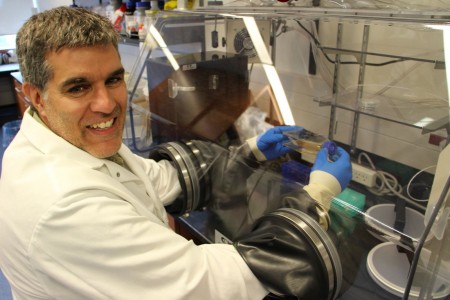Cancer treatment in people could be transformed thanks to a study on treating the disease in animals led by researchers from the Ontario Veterinary College (OVC) at the University of Guelph. Their findings, published in the Journal of Immunology, are already leading to clinical trials to treat people with various forms of cancer.

The researchers found that injecting oncolytic viruses (viruses that target cancer cells) intravenously into the spleen boosts immune response faster and higher than traditional vaccine methods. Typically, physicians need to wait weeks or months to administer a booster vaccine, with the down time potentially deadly.
“Normally, you have to wait until the immune response is down to administer the booster vaccine, but this means that, with severe and dangerous diseases, the response would wane,” said pathobiology professor Byram Bridle, lead author of the paper.
“You don’t want to give cancer any time to spread. What injecting the viruses into the spleen does is it allows us to bypass the regulatory mechanism that would limit its effectiveness. When we conducted these tests in animals, we saw high success rates in treatment of cancer.”
He said the findings apply to many types of cancer, including breast cancer, leukemia, prostate cancer and osteosarcoma (bone cancer), and tumours in the brain, liver and skin.
The researchers from Guelph and McMaster University conducted the tests in mice and in cats brought to the Mona Campbell Centre for Animal Cancer at OVC. Trials on dogs should begin within the next year.
Under traditional treatment options, the tumours grew in the mice. When the researchers started injecting the viruses into the spleen, the tumours disappeared.
“By getting the vaccine to this unique location in the body, we were able to get an unprecedented immune response in minimal time,” said Bridle.
“This is a fundamentally new way to treat cancer that bypasses many common side effects. These therapies are safer and more targeted.”
The findings are already leading to clinical trials for people in Ottawa, Hamilton and Toronto.
Bridle is optimistic that the human trials will help improve cancer treatment.
“We are living in a world where diseases seem to be growing faster than treatment, so we need to outpace them. Time is of the essence. It’s a race we have to win.”